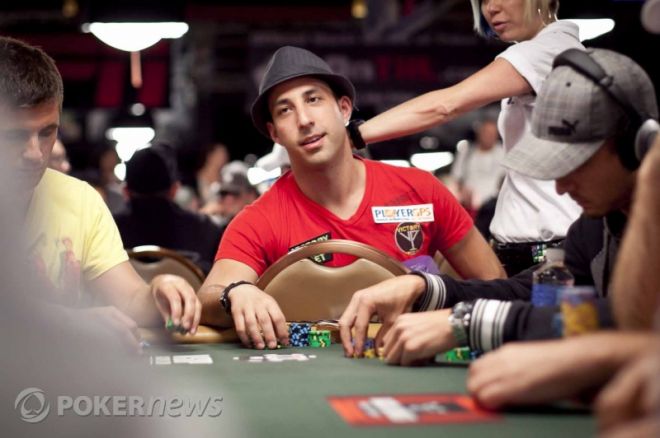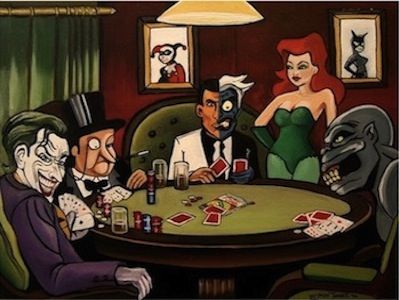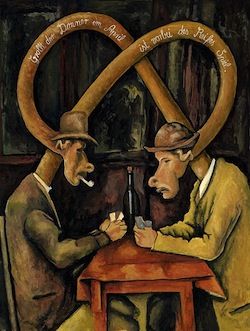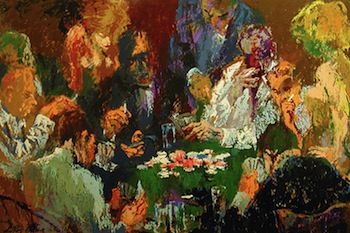Pro Blogs: How To Treat Your Customers by Alec Torelli

Poker pro Alec Torelli offers us his latest blog on how to treat your customers — at the table.
When it comes to customer service, poker players are at the bottom of the pyramid. The root of the problem is our approach to the game. Beyond that, we must shift our focus from winning money to entertaining guests.

How Casinos Treat VIPs
- Chauffeur them to their hotel
- Pay for their flights
- Treat them to expensive meals
- Give them “rake back” with free show tickets
- Make them feel important
- Appreciate their playing with lavish comps
How Poker Players Treat VIPs
- Berate them when they play bad
- Correct their mistakes
- Make them feel stupid
- Treat them like an object (ATM), instead of a human (successful and interesting)
- Scorn when they win
- Make them feel like targets by quitting the game when they leave
An Example
A fish quits when the game becomes three handed. I later find out that he felt uncomfortable because we were speaking in English, a language he didn’t understand. It must have been easy to see from our body language that we were on friendly terms. He didn’t necessarily suspect us of colluding, but likely felt like we were there to take his money. Can you really blame him for quitting?

The poker player should always treat his customers, as a casino would. Their only goal: make them happy. If a VIP wants to play bigger, you do it. If he asks you to straddle, you don’t object. If he wants to see your cards, show them. Your goal at the table is not only to keep them playing but to keep them happy.
You are to provide a good service where they can brag to their friends and feel important. “I play poker in the biggest games at Bellagio because that’s where everyone plays. This one time we had everyone at the table taking shots and making crazy prop bets.”
His focus isn’t “should I have called the river with bottom pair,” but the amazing experience he had. That’s playing winning poker.
Curse Words
Just like a historian doesn’t share every tidbit of knowledge at a dinner party, you never want to make your customers feel stupid by using a language they don’t understand.

Doing so is the poker equivalent of swearing. While you are playing, these words are not in your vocabulary.
Avoid using them at all costs: equity, range, three-bet, four-bet, edge, variance, TwoPlusTwo, c-bet, hand histories, value bet, polarized, meta game and any talk of online poker.
It’s important to note that sharing information goes well beyond discussing hands at the poker table. It just seems to be the quintessential example and where the mistake is most often made.
The problem exists everywhere: reports of lucrative games on TwoPlusTwo, an amazing new poker site, or a new epic fish, are things that players feel compelled to share. The only result is we cost ourselves money.
Discussing Strategy
If I’m asked directly about a hand, of course saying something like “I’m not telling you because I don’t want you to know how I think,” is not just unacceptable, but rude. If it’s the fish who is directing the conversation, I never diffuse it. To the contrary, I offer my two cents and cater it to the level to which they understand.
I’m not a fan of lying to them, but that doesn’t mean I have to be ruthlessly honest. Instead, I like giving light suggestions. “You can always just call and see a flop” or if I agree with their play, “I’d recommend hitting your draw next time.”

It does nobody any good to boast your intelligence with something like: “The equity of your hand against his range dictates you should call.”
Would Rafael Nadal tell a novice player that he needs to balance his serving position on second serves when he is struggling to hit the ball over the net?
And, similarly, would Rafa tell Roger Federer that he likes when he comes to the net because that’s when he is the most exploitable? Off the court they are friends. On the court — enemies.
For all my blogs and content, visit www.alectorelli.com. Your feedback is important to me. Feel free to share your thoughts, ask me questions or leave a comment. For other matters you can email me at [email protected].
Follow PokerNews on Twitter for up-to-the-minute news.








